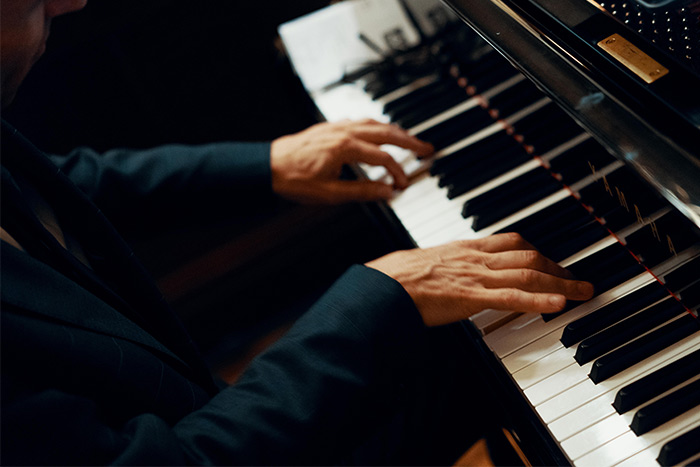As a pianist, there are several training sessions you should focus on to become a professional pianist.
1. Proper Sitting Position at the Piano
The correct posture before starting to play is one of the most important aspects of piano training. You should sit with a straight back and relaxed shoulders.
Make sure your feet are stable on the ground and your arms are level with the keys. This helps you avoid tension and injuries, and allows for better control in playing.
2. Finger Exercises and Technique
Always start with finger exercises at the beginning of your practise. These exercises help improve flexibility and strength in your fingers.
You can use Hanon or Czerny exercises for this purpose.
3. Technical Exercises
Work on technical exercises to develop your piano playing skills. Scales, arpeggios, and finger exercises help improve your technique and speed.
4. Practising Different Pieces
It is important to practise a variety of pieces from different musical eras.
You should choose pieces from the Classical era like Bach, Mozart and Beethoven, and from the Romantic era like Chopin and Liszt.
This helps you develop an understanding of musical evolution and improve your ability to perform different styles.
5. Harmony Between Pieces
To improve the harmony between different pieces, you can start by studying the musical structures and characteristic styles of each era.
Try to choose pieces that have the same key signature or follow the same harmonic progressions.
6. Musical Expression
Don’t forget to focus on the expressive aspect of playing. Try to understand the emotions and mood in each piece and express them in your own style.
To organise piano practise sessions, it’s best to set a clear and systematic plan. Here are some tips:
First, determine the duration of the sessions based on your level. For beginners, sessions can be from 45 minutes to one hour daily. For advanced levels, they can reach an 4 hour or more.
Second, start with warm-up exercises to loosen the fingers. Do scale exercises and finger drills to strengthen the fingers and improve speed.
Third, allocate part of the time to learn new musical pieces. Break the piece into small sections and focus on one section in each session.
Fourth, don’t forget to work on the pieces you’ve already learned to improve performance and fine-tune details.
To increase the practise duration, you can gradually add five to ten minutes each week until you reach the desired duration.
Lastly, try to practise at the same time every day to turn practise into a daily habit.
Remember, regular and consistent practise is the key to progress in playing the piano.










